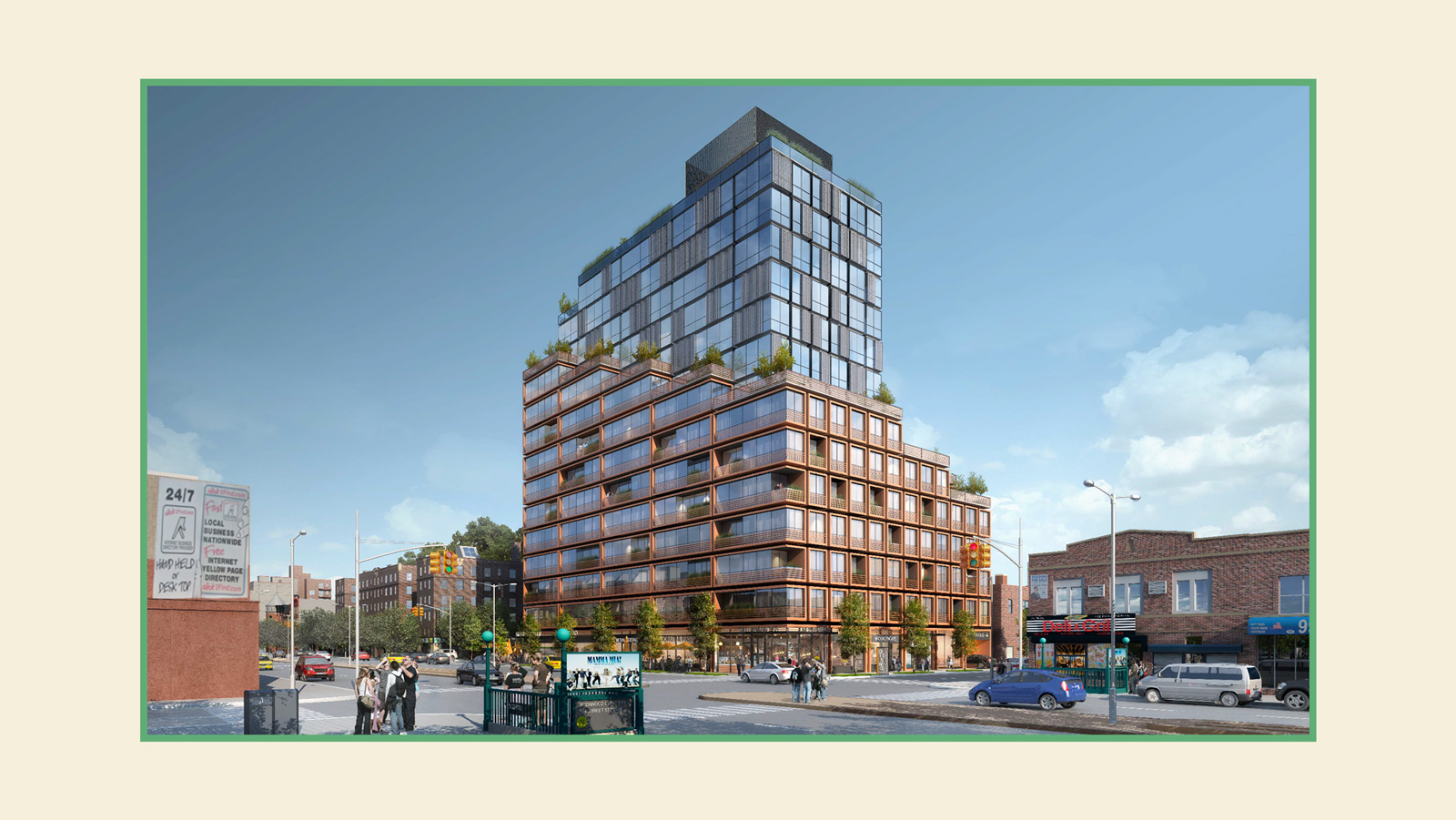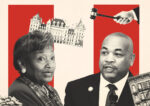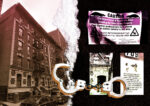As multifamily project filings dwindle in New York, developers have landed construction financing for a mixed-use building in Sunset Park that survived a fraught rezoning process.
The 14-story, mixed-income project at 737 Fourth Avenue will have 187 residential units and 5,500 square feet of retail including a Dunkin Donuts.

The joint venture behind the Brooklyn project includes BEB Capital, Brooklyn developer Totem, individual investor Ofer Cohen and SK Development. SK came aboard following the approval of the rezoning that allowed the 193,000-square-foot project.
Canyon Partners Real Estate and JP Morgan originated $96 million in construction financing, and Tribeca Investment Group made a $25 million preferred equity investment.
A Walker & Dunlop team led by Aaron Appel and Jonathan Schwartz secured the financing.
“New York City is facing the lowest vacancy rate of housing since 1968,” Cohen, whose firm TerraCRG is not a partner in the development, said in a statement. “The project we started over six years ago is finally getting built.”
Parcels for the assemblage were acquired in 2018 and 2019. But the rezoning took years, and the new financing for the Fourth Avenue project came just in time.
The window to qualify for the 421a tax abatement is closing for multifamily developers. While the official deadline to complete projects is June 2026, lenders typically require a one-year buffer period, putting loan covenant deadlines a little more than a year away.
The property tax break, which became the city’s primary affordable housing development program, was criticized for passing too much of its tax benefit to households earning more than the city’s median income. But without 421a, rental projects typically do not pencil out.
The Fourth Avenue project was approved in late 2020 when the Council member who controlled its fate was Carlos Menchaca, best known for torpedoing a rezoning sought by the 35-acre Industry City campus. Neighborhood activists led by Uprose were a powerful force against any development they associated with gentrification, including Totem’s.
The developers behind 737 Fourth Avenue managed to keep investment partner BEB off the activists’ radar and secured the local community board’s blessing, which was Menchaca’s condition for approval.
Its affordable component made the difference.
Some 46 units in the building will be permanently affordable for renters at an average of 48 percent of area median income, one of the lowest AMI averages achieved in the past five years in Brooklyn, according to BEB. The other 141 units will be market rate.
“Given more than a decade of too little affordable housing being built in this area, this project will add substantial affordable housing stock,” said Scott Shnay of SK Development. Only 1,000 units were added in Sunset Park, 80 of which were affordable, between 2014 and 2020, one report found.
In addition to likely benefiting from 421a, the Fourth Avenue project is in an Opportunity Zone, “allowing the ownership team to leverage the maximum abatement and enable the most affordable units to be created,” according to Lee Brodsky, CEO of BEB.
Vivian Liao, co-founder of Totem, said in a statement that the project will “create jobs and infrastructure benefits for Sunset Park.” Developers will set aside space for publicly accessible bike parking and facilitate ADA elevator access to the R train’s 25th Street station.
“Totem and their partners’ commitment to working with the community…especially in this interest rate environment, is greatly appreciated,” said Michelle de la Uz, director of the Fifth Avenue Committee, which will oversee the affordable units, “and will help to address the city’s housing crisis.”
Read more



